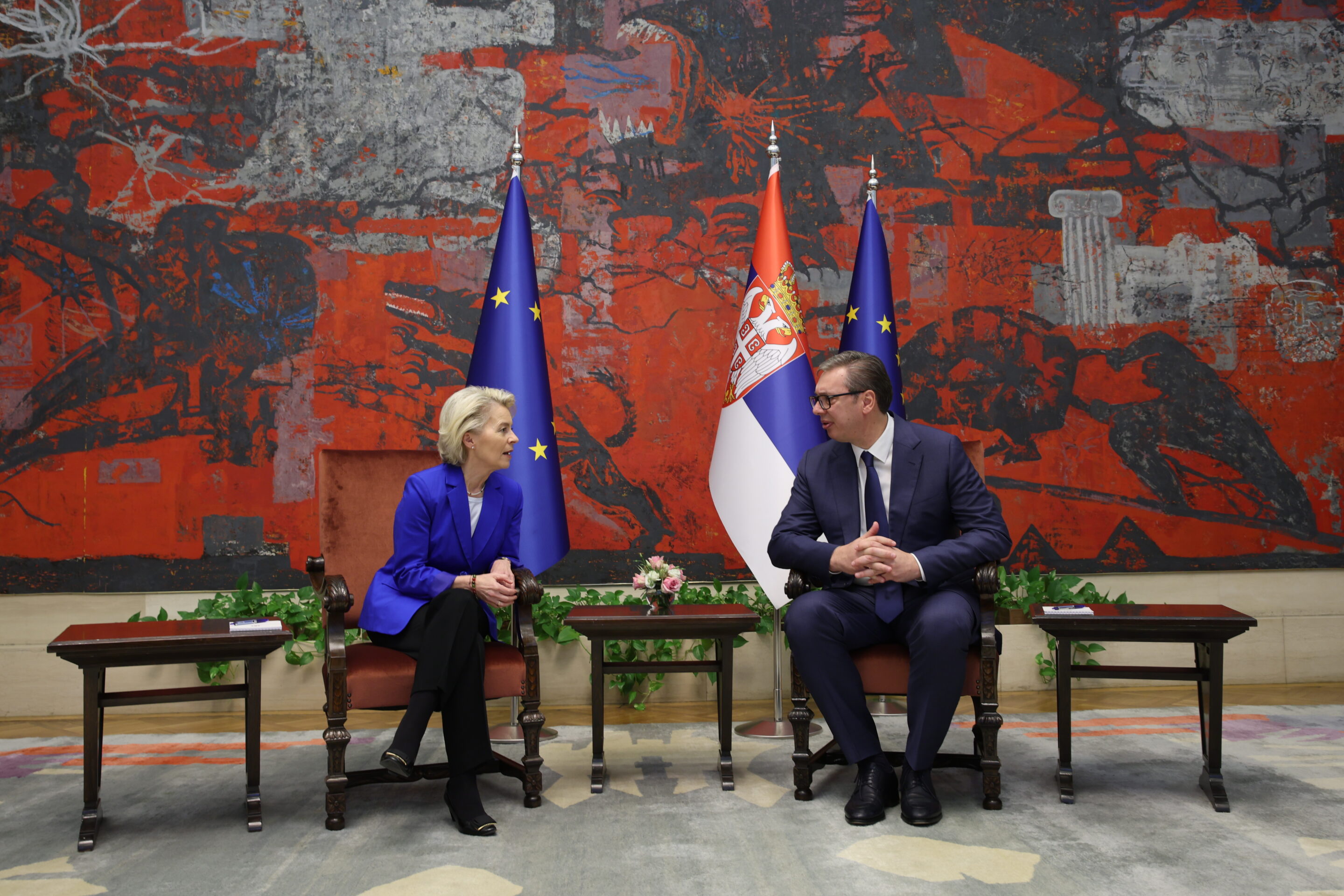Serbia wants to be one of Europe’s top lithium suppliers and is resurrecting a controversial shelved mining project to realise those ambitions. The knock-on impact on its EU membership bid cannot be ignored.
Back in 2022, mass protests hit the streets of some of Serbia’s biggest cities, as environmental groups and local residents demonstrated against a proposed lithium mine in the country’s north.
There was scientific evidence that the project would cause detrimental harm to the environment, communities near the site and agricultural land in the surrounding area.
The outrage was so marked that the government was forced to abandon its plans to allow mining giant Rio Tinto to proceed with the development. Permits were revoked and the firm was told to look elsewhere for valuable minerals.
But that was not the end of the story. The energy transition and its demand for crucial materials like lithium, which is a key component of electric vehicle batteries in particular, means that the potential benefits of the mine have increased.
Serbia’s ruling party, the Progressive Party, has also strengthened its iron-clad grip on power since the mine project was shelved. This is largely the reason why the decision was made, in order to pave the way for President Aleksandar Vučić’s autocratic regime to get even more free rein to do as it likes.
And what it currently likes is to give Rio Tinto a second bite of the lithium cherry.
Earlier this week, Vučić indicated that he will give the project the green light, if the European Union and Rio Tinto are able to provide certain guarantees.
On the latter’s part, the firm has been asked to demonstrate that the mine will have the reduced environmental impact that it claims. Brussels, meanwhile, is going to have to show that there will be enough business in the value chain for Serbia’s lithium exports.
That means showing that investments are being made into electric vehicle production and battery manufacturing. Serbia does not want to make a controversial decision and at the end of the day for it to have been all for nothing.
Brussels is clearly interested.
Back in late 2023, Vučić signed a letter of intent with the EU about a strategic partnership on materials like lithium. The EU can also point to the billions being poured into batteries and its recent decision to slap tariffs on Chinese imports.
The message is simple: build it here.
Serbia might not be content to just be the EU’s ‘white gold’ dealer. There are rumours that the government will make two controversial decisions: approve the mining permits and ban the export of raw lithium.
If the latter policy is implemented, it will be a clear indicator that not only does Serbia want companies to develop its lithium deposits – worth an estimated €4 billion – but also to invest in refining and processing facilities too.
Countries are all about ‘capturing the value chain’ and Serbia will be no different.
Geopolitical impact
Serbia’s mining saga can also be viewed through the geopolitical lens, as it arguably shows that Belgrade has not completely strayed from its EU membership path, despite numerous trips and stumbles of late.
Vučić’s government’s refusal to sanction Russia and his flirtation with flagrant rule of law breaches have led many liberal politicians and political analysts to question whether Serbia still wants to become a member of the club.
This lithium story indicates that Serbia is still interested, if it is looking to the EU for value chain guarantees rather than China, Russia or even the United States.
Slavic brotherhood with Russia might only extend so far, as any notion that Europe’s ostracising of Vladimir Putin’s regime might only be short-lived is squashed with each passing day.
Sanctions keep piling up. Gas was previously seen as an untouchable sector yet this week EU governments agreed to target the LNG sector. Vučić is no fool and might be able to see that staying aligned with Moscow is a bad bet.
As far as China is concerned, Beijing already owns copper and gold mines in Serbia and is the Balkan country’s second largest trading partner after the EU.
But Belgrade is unlikely to get away with its refining and processing gambit with China, so better to chance its hand with Brussels, where the potential rewards are greater.
If Serbia does get this mine up and running – some estimates say it could be churning out 58,000 tonnes per year by 2028 – then it will be able to satisfy nearly a fifth of EU lithium demand for electric vehicle batteries.
That is huge and gives Serbia a powerful hand to play in EU membership talks, if Brussels is indeed in the mood to make enlargement progress in the coming years.
Plenty of EU countries have electric vehicle manufacturing, assembly and maintenance facilities opening up, not to mention lucrative battery building centres. So any lingering doubts about Vučić’s politics might just be trumped by strategic autonomy concerns.
The EU has given Vučić a lot of free rein in the past as he has often – sometimes inexplicably – been viewed as some sort of guarantor of stability in the region.
Throw top lithium merchant into the mix and the Serbian president’s position will look even more rock solid. It might also aid his nation in moving closer to EU membership.
Want more updates and analysis of what is happening in the world of energy and climate? Interested in finding a job in the sector or more information about public tenders? Sign up to our Energy Rundown newsletter here!

